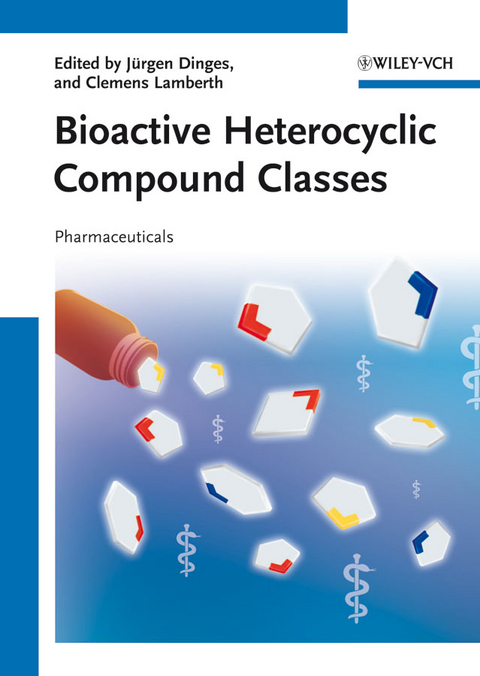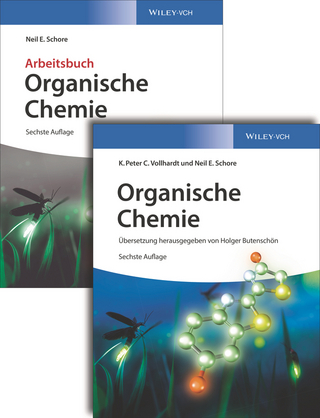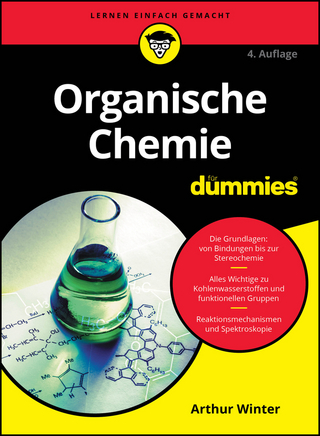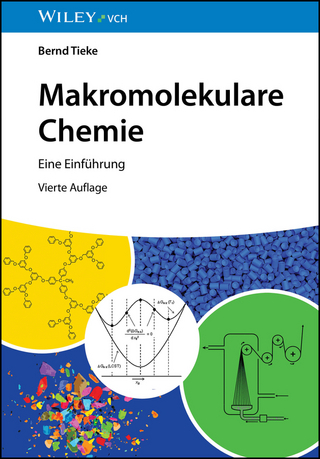Bioactive Heterocyclic Compound Classes
Wiley-VCH (Verlag)
978-3-527-33395-0 (ISBN)
- Titel ist leider vergriffen;
keine Neuauflage - Artikel merken
hormones, antibiotics, vitamins, etc. are composed of heterocyclic structures.
The chemistry of heterocycles is an important branch of organic chemistry. This is due to the fact that a large number of natural products, e. g.hormones, antibiotics, vitamins, etc. are composed of heterocyclic structures. Often, these compounds show beneficial properties and are therefore applied as pharmaceuticals to treat diseases or as insecticides, herbicides or fungicides in crop protection.This volume presents important pharmaceuticals. Each of the 20 chapters covers in a concise manner one class of heterocycles, clearly structuredas follows:* Structural formulas of most important examples (market products)* Short background of history or discovery* Typical syntheses of important examples* Mode of action* Characteristic biological activity* Structure-activity relationship* Additional chemistry information (e.g. further transformations, alternative syntheses, metabolic pathways, etc.)* References.A valuable one-stop reference source for researchers in academia and industry as well as for graduate students with career aspirations in thepharmaceutical chemistry.
Jürgen Dinges obtained his M.S. degree in organic chemistry at the Technical University in Darmstadt, Germany in 1988. He then joined the group of Prof. Frieder W. Lichtenthaler at the same University, where he received his Ph.D. degree in organic chemistry and chemical engineering in 1991. After being awarded a Feodor-Lynen scholarship from the Humboldt foundation, he spent 18 months as a postdoctoral fellow in the group of Prof. William G. Dauben at the University of California at Berkeley, U.S.A. In 1993, Jurgen Dinges joined the department for biochemistry at Syntex, U.S.A. and since 1995 he is working in the pharmaceutical research department at Abbott Laboratories, U.S.A. In 2009, he was a guest editor for Current Topics in Medicinal Chemistry for a special issue on Parkinson's disease. He is an author of 17 publications and 23 patents and a co-inventor of more than 10 clinical drug development candidates. Clemens Lamberth is a senior team leader in the crop protection research department of Syngenta AG, Switzerland. He studied chemistry at the Technical University of Darmstadt, Germany, where he obtained his Ph.D. under the supervision of Prof. Bernd Giese in 1990. Subsequently, he spent one and a half years as a postdoctoral fellow in the group of Prof. Mark Bednarski at the University of California at Berkeley, U.S.A. In 1992 Clemens Lamberth joined the agrochemical research department of Sandoz Agro AG, Switzerland, which is today, after two mergers, part of Syngenta Crop Protection AG. Since 20 years he is specialized in fungicide discovery. He was the organizer of the two-day session 'New Trends for Agrochemicals' at the 2nd EUCHEMS congress in Torino 2008. He is the author of 46 publications and 56 patents and the inventor of Syngenta's fungicide mandipropamid (Revus®, Pergado®).
IINTRODUCTION
THE SIGNIFICANCE OF HETEROCYCLES FOR PHARMACEUTICALS AND AGROCHEMICALS
Introduction
Heterocycles as Framework of Biologically Active Compounds
Fine-Tuning the Physicochemical Properties with Heterocycles
Heterocycles as Prodrugs
Heterocycles as Peptidomimetics
Heterocycles as Isosteric Replacement of Functional Groups
Heterocycles as Isosteric Replacement of Alicyclic Rings
Heterocycles as Isosteric Replacement of other Heterocyclic Rings
PART I: Neurological Disorders
TROPANE-BASED ALKALOIDS AS MUSCARINIC ANTAGONISTS FOR THE TREATMENT OF ASTHMA, OBSTRUCTIVE PULMONARY DISEASE, AND MOTION SICKNESS
Introduction
History
Synthesis
Mode of Action
Structure?Activity Relationships
MORPHINONE-BASED OPIOID RECEPTOR AGONIST ANALGESICS
Introduction
History
Synthesis
Mode of Action
Structure?Activity Relationship
BARBITURIC ACID-BASED GABA(A) RECEPTOR MODULATORS FOR THE TREATMENT OF SLEEP DISORDER AND EPILEPSY AND AS ANESTHETICS
Introduction
History
Synthesis
Mode of Action
Structure?Activity Relationship
PHENOTHIAZINE-BASED DOPAMINE D2 ANTAGONISTS FOR THE TREATMENT OF SCHIZOPHRENIA
Introduction
History
Synthesis
Mode of Action
Structure?Activity Relationships
ARYLPIPERAZINE-BASED 5-HT1A RECEPTOR PARTIAL AGONISTS AND 5-HT2A ANTAGONISTS FOR THE TREATMENT OF AUTISM, DEPRESSION, ANXIETY, PSYCHOSIS, AND SCHIZOPHRENIA
Introduction
History
Synthesis
Mode of Action
Structure?Activity Relationship
ARYLPIPERIDINE-BASED DOPAMINE D2 ANTAGONISTS/5-HT2A ANTAGONISTS FOR THE TREATMENT OF AUTISM, DEPRESSION, SCHIZOPHRENIA, AND BIPOLAR DISORDER
Introduction
History
Synthesis
Mode of Action
Structure?Activity Relationship
DIBENZAZEPINE-BASED SODIUM CHANNEL BLOCKERS FOR THE TREATMENT OF NEUROPATHIC PAIN
Introduction
History
Synthesis
Mode of Action
Structure?Activity Relationships
PART II: Cardiovascular Diseases
DIHYDROPYRIDINE-BASED CALCIUM CHANNEL BLOCKERS FOR THE TREATMENT OF ANGINA PECTORIS AND HYPERTENSION
Introduction
History
Synthesis
Mode of Action
Structure?Activity Relationship
TETRAZOLE-BASED ANGIOTENSIN II TYPE 1 (AT1) ANTAGONISTS FOR THE TREATMENT OF HEART FAILURE AND CONGESTIVE HYPERTENSION
Introduction
History
Synthesis
Mode of Action
Structure?Activity Relationship
THIAZIDE-BASED DIURETICS FOR THE TREATMENT OF HYPERTENSION AND GENITOURINARY DISORDERS
Introduction
History
Synthesis
Mode of Action
Structure?Activity Relationship
TETRAHYDROPYRANONE-BASED HMG-COA REDUCTASE INHIBITORS FOR THE TREATMENT OF ARTERIAL HYPERCHOLESTEROLEMIA
Introduction
History
Synthesis
Mode of Action
Structure?Activity Relationship
PART III: Infectious Diseases
ADENINE-BASED REVERSE TRANSCRIPTASE INHIBITORS AS ANTI-HIV AGENTS
Introduction
History
Synthesis
Mode of Action
Structure?Activity Relationship
GUANINE-BASED NUCLEOSIDE ANALOGS AS ANTIVIRAL AGENTS
Introduction
History
Synthesis
Mode of Action
Structure?Activity Relationship
PENICILLIN AND CEPHALOSPORIN ANTIBIOTICS
Introduction
History
Synthesis
Mode of Action
Structure?Activity Relationships
PART IV: Oncology
PYRIMIDINE-BASED KINASE INHIBITORS IN CANCER CHEMOTHERAPY
Introduction
History
Synthesis
Mode of Action
Structure?Activity Relationship
BENZYL TRIAZOLE-BASED AROMATASE INHIBITORS FOR THE TREATMENT OF BREAST CANCER
Introduction
History
Synthesis
Mode of Action
Structure?Activity Relationship
PART V: Inflammation and Gastrointestinal Diseases
ACETONIDE-BASED GLUCOCORTICOIDS FOR THE TREATMENT OF ASTHMA, SKIN INFLAMMATION AND DISEASES OF THE EYE
Introduction
History
Synthesis
Mode of Action
Structure?Activity Relationship
BENZIMIDAZOLE-BASED H+/K+-ATPASE INHIBITORS FOR THE TREATMENT OF GASTROESOPHAGEAL REFLUX DISEASE
Introduction
History
Synthesis
Mode of Action
Structure?Activity Relationships
PART VI: Metabolic Diseases
THIAZOLIDINEDIONE-BASED INSULIN SENSITIZERS:PPAR-G AGONISTS FOR THE TREATMENT OF TYPE 2 DIABETES
Introduction
History
Synthesis
Mode of Action
Structure?Activity Relationship
INDEX
| Erscheint lt. Verlag | 18.9.2012 |
|---|---|
| Reihe/Serie | Bioactive Heterocyclic Compound Classes |
| Sprache | englisch |
| Maße | 170 x 240 mm |
| Gewicht | 870 g |
| Themenwelt | Naturwissenschaften ► Chemie ► Organische Chemie |
| Schlagworte | Bioaktive Verbindungen • Biochemie • biochemistry • Biowissenschaften • Chemie • Chemistry • Heterocyclen • Heterocyclische Verbindungen • Life Sciences • Natural Products • Naturstoffchemie • Organic Chemistry • Organische Chemie • Pharmaceutical & Medicinal Chemistry • Pharmaceutical & Medicinal Chemistry • Pharmazeutische Chemie • Pharmazeutische u. Medizinische Chemie |
| ISBN-10 | 3-527-33395-9 / 3527333959 |
| ISBN-13 | 978-3-527-33395-0 / 9783527333950 |
| Zustand | Neuware |
| Haben Sie eine Frage zum Produkt? |
aus dem Bereich




